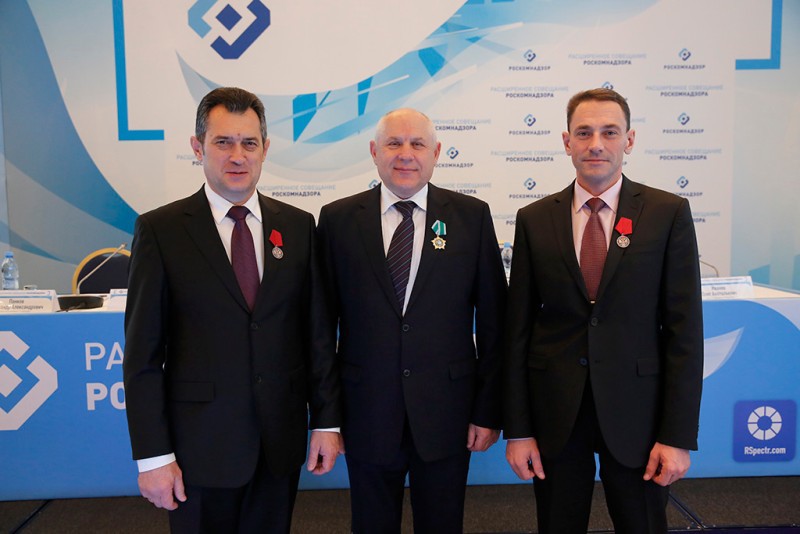Roskomnadzor summed up the results of 2014 with satisfaction
The Federal Service for Supervision in the Field of Communications, Information Technologies and Mass Communications (Roskomnadzor) worked very fruitfully in the outgoing 2014. Head of department Alexander Zharov told about the successes at the meeting on December 22.

Alexander Zharov
Successes in brief:
')
Alexander Zharov emphasized the growing need of society for the safe circulation of data on the Internet: compared to last year, the number of complaints about violations of the rights of personal data subjects has doubled.
As is known, after the entry into force of Federal Law No. 398-FZ, the powers of Roskomnadzor were significantly expanded. Alexander Zharov and his colleagues got the right to block websites out of court.

Enlarged meeting of Roskomnadzor
The decision to include resources in the black list is made by the Federal Service for the Control of Drug Trafficking, Rospotrebnadzor or Roskomnadzor. By law, the Internet resource is subject to blocking, if the prohibited information is not deleted within three days from the day the notification was sent.
Even more work at “watching the Internet” appeared after the adoption of the law number 97-FZ. It provides for the creation of a register of sites and pages of sites on the network that host publicly available information and access to which during the day amounts to more than 3,000 Internet users. The law introduces the concept of "blogger" as a person who publishes information on such a popular site. The blogger is responsible for his words and is obliged to reveal the identity.
Bloggers are not allowed to curse obscenely (the law was adopted in a timely manner, prior to the devaluation and the economic crisis in Russia), to distribute materials that promote pornography, the cult of violence and cruelty.
Roskomnadzor now maintains a register of information dissemination organizers on the Internet and a register of bloggers.

Alexander Zharov
Successes in brief:
')
- 45,700 blocked resources (64% for propaganda and distribution of illicit drugs);
- removal of information from sites owned by Google, Facebook, Twitter, Alibaba;
- 317 bloggers are entered in the register, another 187 "are awaiting";
- the volume of systematic observation measures was increased (over 15,000 events were conducted in the first 11 months of 2014, as opposed to 14,500 events for the entire 2013): monitoring became the main method of detecting violations;
- New judicial practice to protect the rights of citizens in the illegal processing of personal data on the Internet and the practice of restricting access to sites at the trial stage.
Alexander Zharov emphasized the growing need of society for the safe circulation of data on the Internet: compared to last year, the number of complaints about violations of the rights of personal data subjects has doubled.
As is known, after the entry into force of Federal Law No. 398-FZ, the powers of Roskomnadzor were significantly expanded. Alexander Zharov and his colleagues got the right to block websites out of court.

Enlarged meeting of Roskomnadzor
The decision to include resources in the black list is made by the Federal Service for the Control of Drug Trafficking, Rospotrebnadzor or Roskomnadzor. By law, the Internet resource is subject to blocking, if the prohibited information is not deleted within three days from the day the notification was sent.
Even more work at “watching the Internet” appeared after the adoption of the law number 97-FZ. It provides for the creation of a register of sites and pages of sites on the network that host publicly available information and access to which during the day amounts to more than 3,000 Internet users. The law introduces the concept of "blogger" as a person who publishes information on such a popular site. The blogger is responsible for his words and is obliged to reveal the identity.
Bloggers are not allowed to curse obscenely (the law was adopted in a timely manner, prior to the devaluation and the economic crisis in Russia), to distribute materials that promote pornography, the cult of violence and cruelty.
Roskomnadzor now maintains a register of information dissemination organizers on the Internet and a register of bloggers.
Source: https://habr.com/ru/post/355760/
All Articles